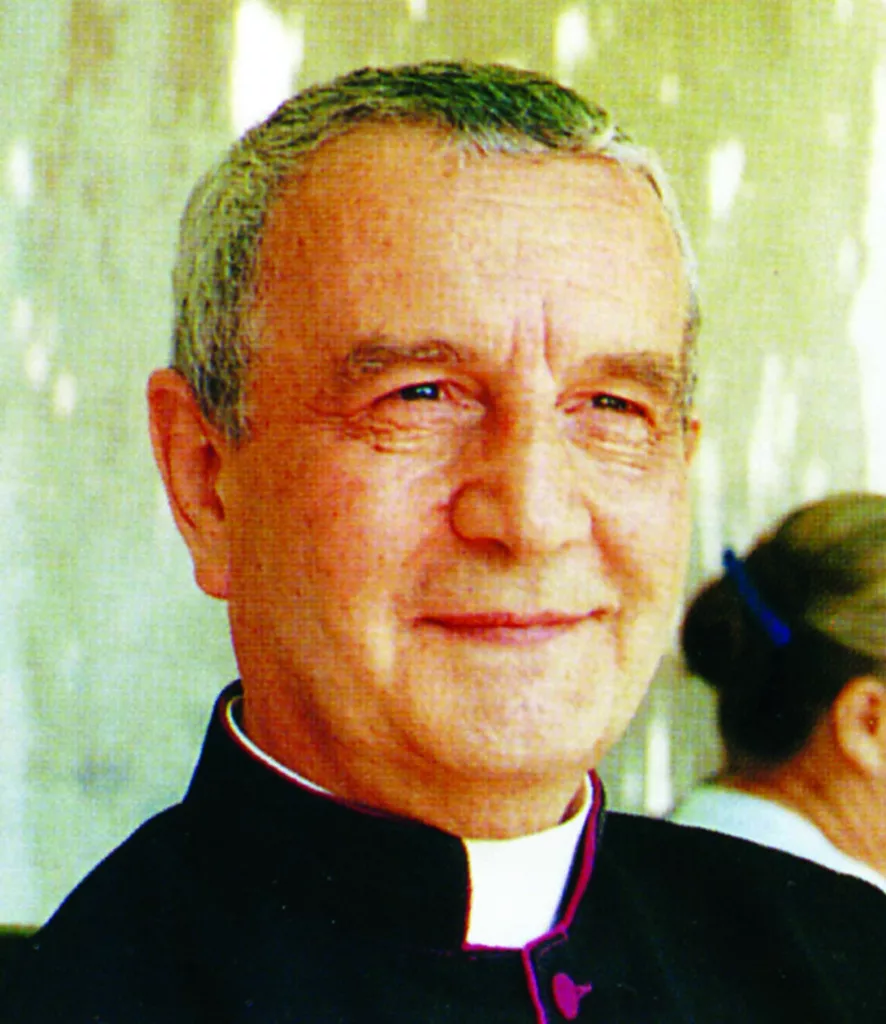In the Europe of the 21st century, Latin may seem like a dead and outdated language. However, the Community celebrates mass in Latin at the seminary and in certain parishes. Why?
The Latin in the roman liturgy is not an absolute, nor an end in itself; it is a means in order to serve the prayer, a sign of expression of our faith. And this sign is trifold.
The Latin: sign of historical rooting.
During more than fifteen centuries, in the Occident, the faith has grown and developped in the cradle of the roman culture, in the latin language. To conserve the Latin is to acknowledge that we do not invent our faith, but that we receive it by this long chaine of transmission, with the expressions and the prayers forged by our predecessors.
The Latin: sign of the unity of the Church
The Latin has during the history played a unifying role. It allows numerous christians to have a common expression of the faith. During big international gatherings, it is necessary, in order to pray together, to have a common language.
The Latin: sign of the sacred
The Latin is also a sacred language, a language different from the everyday language, reserved to God, which expresses the transcendance of the liturgy. The Latin of the Mass manifests the vertical, ascending dimension of the cult given to God; the prayers are not addressed to humans but to God.
All that is very beautiful; but how do you participate in the Mass if you don’t understand anything? How do you participate in the Mass in this case? Active participation is first and foremost the association with the sacrifice of Christ. Often, it isn’t so much an unknown language that hinders the true participation as the routine of the words which one has heard very often. In this sense, it is profitable to follow the Mass in a people’s missal, which is true as well for the Latin as for the vernacular language. In this way, one passes beyond the listening by routine and one prays more easily with the priest, instead of listening to words vaguely known by heart.
The Community of Saint Martin does not have as objective to impose the Latin everywhere. It wants to aid the parishioners to find God – and for this the Latin may either be helpful or not. In the practice of the parishes, today the vernacular language is more frequent than the Latin. The priests of the Community want to celebrate the mystery of Christ, with and for the people confined to them. The customs and the needs of the parishioners is their principal concern; the Latin may be profitable, but it constitutes sometimes a hindrance for certains. From this comes a variety in the customs of the different parishes confined to the Community.

